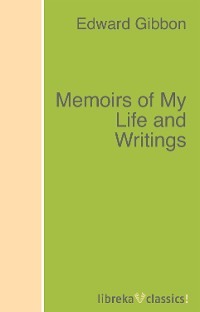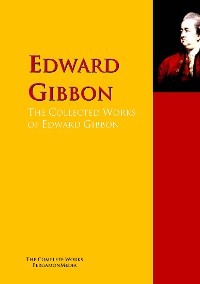 полная версия
полная версияPrivate Letters of Edward Gibbon (1753-1794) Volume 2 (of 2)
*And now, My Lady.
Let me approach your gentle, not grimalkin, presence, with deep remorse. You have indirectly been informed of my state of mind and body; (the whole winter I have not had the slightest return of the Gout, or any other complaint whatsoever;) you have been apprized, and are now apprized, of my motions, or rather of my perfect and agreeable repose; yet I must confess (and I feel) that something of a direct and personal exchange of sentiment has been neglected on my side, though I still persuade myself that when I am settled in my new house I shall have more subject, as well as leisure to write. Such tricks of lazyness your active spirit is a stranger to, though Mrs. Frazer complains that she has never had an answer to her last letters.* That aforesaid little Donna Catharina arrived here three or four days with her sister Miss Bristow: the widow is impatient to reach England: the maiden, who is much better, proposes staying here the whole summer with her dear Doctor Tissot, and returning on the approach of Winter to pass another season at Nice. *Poor Lady Pembroke!93 you will feel for her; after a cruel alternative of hope and fear, her only daughter, Lady Charlotte, died at Aix at Provence; they have persuaded her to come to this place, where she is intimately connected with the Cerjat family. She has taken an agreeable house, about three miles from the town, and lives retired. But I have seen her; her behaviour is calm, but her affliction —
I accept with gratitude your friendly proposal of Wedgewood's ware, and should be glad to have it bought and packed, and sent without delay through Germany.* To you I leave the absolute and sole command, but if you have a mind to consult the Baron with regard to the ornamental, the creature is not totally devoid of taste: the number, choice, pattern, sizes, &c. you will determine, and *I shall only say, that I wish to have a very compleat service for two courses and a desert, and that our suppers are numerous, frequently fifteen or twenty persons. Adieu. I do not mean this as your letter. You are very good to poor Kitty. With you I do not condole about Coventry.*
May 11th, 1784. I wrote the first page of my letter last week.
494.
To his Stepmother
Lausanne, May 28th, 1784.Dear Madam,
*I begin without preface or Apology, as if I had received your letter by the last post. In my own defence I know not what to say; but if I were disposed to recriminate, I might observe that you yourself are not perfectly free from the sin of laziness and procrastination. I have often wondered why we are not fonder of letter-writing: we all delight to talk of ourselves, and it is only in letters, in writing to a friend, that we can enjoy that conversation, not only without reproach or interruption, but with the highest propriety and mutual satisfaction; sure that the person whom we address feels an equal, or at least a strong and lively interest in the consideration of the pleasing subject. On the subject therefore of self I will entertain a friend, to whom none of my thoughts or actions, none of my pains or pleasures can ever be indifferent.
When I first cherished the design of retiring to Lausanne, the loss I can hardly call it of your society, but at least of your neighbourhood, and the fear of your anxiety and disapprobation have always stood before me as the most powerful objections, and I was much more apprehensive of wounding your tender attachment, than of offending Lord Sheffield's manly and vehement friendship. In the abolition of the board of trade, the motives for my retreat became more urgent and forcible; I wished to break loose, yet I delayed above a year before I could take my final resolution; and the letter in which I disclosed it to you cost me one of the most painful struggles of my life. As soon as I had conquered that difficulty, all meaner obstacles fell before me, and in a few weeks I found myself at Lausanne, astonished at my firmness and my success.
THE REIGN OF SINECURES AT AN END.
Perhaps you still blame or still lament the step which I have taken. If on your own account, I can only sympathize with your feelings, the recollection of which often costs me a sigh; If on mine, let me fairly state what I have escaped in England, and what I have found at Lausanne. Recollect the tempests of this winter, how many anxious days I should have passed, how many noisy, turbulent, hot, unwholesome nights, while my political existence, and that of my friends, was at stake; yet these feeble efforts would have been unavailing; I should have lost my seat in Parliament, and after the extraordinary expence of another Year, I must still have pursued the road of Switzerland, unless I had been tempted by some selfish Patron, or by Lord S.'s aspiring spirit, to purchase at a most inconvenient price a new seat; and once more, at the beginning of an opposition, to engage in new scenes of business. As to the immediate prospect of any thing like a quiet and profitable retreat, I should not know where to look; my friends are no longer in power. With *Pitt* and his party I have no connection; and were he disposed to favour a Man of letters, it is difficult to say what he could give, or what I would accept. The reign of pensions and sinecures is at an end, and a commission in the Excise or customs, the summet of my hopes, would give me bread at the expence of leisure and liberty. When I revolve these circumstances in my mind, my only regret, I repeat it again and again, is, that I did not embrace this salutary measure three, five, ten years ago.
Thus much I thought it necessary to say, and shall now dismiss this unpleasing part of the subject. For my situation here, health is the first consideration, and on that head your tenderness had conceived some degree of anxiety. I know not whether it has reached you that I had a fit of the Gout the day after my arrival. The deed is true, but the cause was accidental; carelessly stepping down a flight of stairs, I sprained my ancle; and my ungenerous enemy instantly took advantage of my weakness. But since my breaking that double chain, I have enjoyed a winter of the most perfect health that I have perhaps ever known, without any mixture of the little flying incommodities which in my best days have sometimes disturbed the tranquillity of my English life. You are not ignorant of Dr. Tissot's reputation, and his merit is even above his reputation. He assures me, that in his opinion, the moisture of England and Holland is most pernicious, the dry pure air of Switzerland most favourable, to a Gouty constitution: that experience justifies the Theory; and that there are fewer martyrs of that disorder in this, than in any other country in Europe.
To face p. 108, Vol. II.HIS HOUSE, TERRACE, AND GARDEN.
This winter has every where been most uncommonly severe; and you seem in England to have had your full share of the general hardship: but in this corner, surrounded by the Alps, it has rather been long than rigorous; and its duration stole away our spring, and left us no interval between furs and silks. We now enjoy the genial influence of the Climate and the Season; and no station was ever more calculated to enjoy them than Deyverdun's house and garden, which are now become my own. You will not expect that the pen should describe, what the pencil would imperfectly delineate. A few circumstances may, however, be mentioned. My library is about the same size with that in Bentinck Street, with this difference, however, that instead of looking on a paved court twelve feet square, I command a boundless prospect of vale, mountain, and water, from my three windows; my apartment is compleated by a spacious light closet, or store-room, with a bed-chamber and dressing-room. Deyverdun's habitation is pleasant and convenient, though less extensive: for our common use we have a very handsome winter apartment of four rooms; and on the ground-floor, two cool saloons for the summer, with a sufficiency, or rather superfluity, of offices, &c. A Terrace, one hundred yards long, extends beyond the front of the House, and leads to a close impenetrable shrubbery; and from thence the circuit of a long and various walk, carries me round a meadow and vineyard. The intervals afford abundant supply of fruit, and every sort of vegetables; and if you add, that this villa (which has been much ornamented by my friend) touches the best and most sociable part of the town, you will agree with me, that few persons, either princes or philosophers, enjoy a more desirable residence.
Deyverdun, who is proud of his own works, often walks me round, pointing out, with knowledge and enthusiasm, the beauties that change with every step and with every variation of light. I share, or at least I sympathize, with his pleasure: he appears content with my progress, and has already told several people, that he does not despair of making me a Gardener. Be that as it may, you will be glad to hear that I am, by my own choice, infinitely more in motion, and in the open air, than I ever have been formerly. Yet my perfect liberty and leisure leave me many studious hours; and as the circle of our acquaintance retire into the Country, I shall be much less engaged in company and diversion. I have seriously resumed the prosecution of my history; each day and each month adds something to the completion of the great work. The progress is slow, the labour continual, and the end remote and uncertain. Yet every day brings its amusement, as well as labour; and though I dare not fix a term, even in my own fancy, I advance, with the pleasing reflection, that the business of publication (should I be detained here so long) must enforce my return to England, and restore me to the best of mothers and friends.
With health and competence, with a full independence of mind and action, a delightful habitation, a true friend, and many pleasant acquaintance, you will allow, in the meanwhile, that I am rather an object of envy than pity; and if you were more conversant with the use of the French language, I would seriously propose to you to repose yourself with us in this fine country. But my indirect intelligence (on which I sometimes depend with more implicit faith than on the kind dissimulation of your friendship) gives me reason to hope that the last winter has been more favourable to your health than the preceding one. Assure me of it yourself honestly and truly, and you will afford me one of the most lively pleasures* that I am capable of receiving. Write soon, and indeed I will not be so tardy in my answer. Caplin presents his duty to you. You will be sorry to hear that he seems tolerably satisfied, and talks French (when I am not present) like a magpye. The English who have passed the Winter at Nice, Lady Pembroke, &c., are flocking here. I am civil without living among them, but you will rejoyce to hear that Mr. and Madame Necker pass the summer in our neighbourhood. I must request a short delay in your Midsummer draught as I am ignorant whether some money is paid in, but it need not exceed a fortnight or three weeks. Adieu.
495.
To Lord Sheffield
Lausanne, June 19th, 1784.The Goslings cannot do a handsome thing with a tolerable grace. They have accepted and paid Lessert's draught, but instead of taking your word or note or bond, for the entire sum as a separate loan, they have eked it out by squeezing to the last drop of between £300 and 400 of my cash in their hands without leaving me a shilling to supply the necessary and current demands. Alas, poor Lymington!! By this post I write to them, as well as to the Darrels, and one way or another I must create some temporary credit till the business of Lenborough is settled. When in the Devil's name (for to him most rightfully belong all money transactions) will it be concluded? Originally the purchase-money was to be paid in February, we are now in the middle of June. You have never suggested any impediments; even in your last you say it is in a fair way, yet surely four or five extraordinary months exceed even the common forms and delays of lawyers, auctioneers, and all that unfeeling race of men. I cannot suspect your friendship or diligence, yet possibly the Coventry election and your more early retreat to Sheffield may have thrown you a little out of the road: but I trust that you will soon recover your lost ground (if any) and finish the race with speed and success. You are sensible that it will deliver me from the remnant of my Worldly anxieties. If the purchaser is an honest and responsible man, might he not be persuaded to advance £500 on the purchase-money; no uncommon favour, and which now would be most singularly acceptable. If, on the other hand, he shuffles through weakness of mind or purse, I could support (in my present regular economy) the idea of reserving the Estate till more prosperous times, and of finding some real or personal security for the money which the Goslings have advanced.
HIS HOSPITALITIES.
*In this glorious season I frequently give tea and supper to a dozen men and women with ease and reputation, and heartily wish you and My Lady were among them. In this corner of Europe we enjoy, or shall speedily enjoy, (besides threescore English, with Lady Pembroke, and forty French, with the Duchess de Sivrac at their head), M. et Madame Necker, the Abbé Raynal, the Hereditary prince of Brunswick, Prince Henry of Prussia,94 perhaps the Duke of Cumberland; yet I am still more content with the humble natives, than with most of these illustrious names. Adieu. The post is on the wing, and you owe me a long Epistle. I am, as usual, in the firm intention of writing next week to my lady.* I hear from Ostend of the landing of four boxes: but I know not whether the Wedgewood is among them. If not, I hope it will soon follow. Adieu.
Could you not write to Gosling to release my poor Cash, and to take the whole of Lessert's sum on yourself?
496.
To Lord Sheffield
Lausanne, October 18th, 1784.*Since my retreat to Lausanne our Correspondence has never received so long an interruption; and as I have been equally taciturn with the rest of the English World, it may now be a problem among that sceptical nation, whether the historian of the decline and fall be a living substance or an empty name. So tremendous is the sleepy power of laziness and habit, that the silence of each post operated still more strongly to benumb the hand, and to freeze the Epistolary ink. How or when I should have naturally awakened, I cannot tell; but the pressure of my affairs, and the arrival of your last letter, compell me to remember that you are entrusted with the final amputation of the best limb of my property. The subject is in itself so painful, that I have postponed it, like a child's physic, from day to day; and losing whole mornings, as I walked about my library, in useless regret and impotent resolution. You will be amazed to hear that (after peeping to see that you were well, and returned from Ireland) I have not yet had the courage to peruse your letter, for fear of meeting with some gloomy intelligence; and I will now finish what I have to say of pecuniary matters, before I know whether its contents will fortify or overthrow my unbyassed sentiments.*
About three weeks ago I received the conveyance of Lenbourough, and immediatly executed the deeds in the presence of the Honble and Reverend Edward Conway, and Mr. Jones of Ireland, a nephew of Lord Tyrone. A coach was setting off, and the writings properly packed were directed to Mr. Elmsley, and in the inner Cover to Ld Sheffield to be left till called for: before this time they should be safe in London; the purchaser is said to be impatient. I am so likewise, and nothing (I should apprehend) can prevent you from delivering the land and receiving the Money. The miserable state of the funds must excuse the lowness of the price, and annihilate any probable benefit of a short delay: but when I look back (a foolish retrospect!) to our moderate expectation of £20,000 and calculate the interest, money, costs, vexations, &c., of eleven Years, I cannot look upon myself as a very successful man. Consider that since my departure I have fairly or foully lost at least £2000 on which I might depend with the most rational confidence, £1000 on the abatement of the Lenborough price, and £1000 by the dissolution of Parliament. *To what purpose (you will say) are these tardy and useless repinings? To arraign your manager? No, I am satisfied with the skill and firmness of the pilot, and only complain of the untoward violence of the tempest. To repent of your retreat into Switzerland? No, surely, every subsequent event has tended to make it as necessary as it has proved agreeable. Why then these lamentations? Hear and attend.
HIS PECUNIARY AFFAIRS.
It is to interest (if possible more strongly) your zeal and friendship, to justify a sort of avarice, of a love of money, very foreign to my character, but with which I cling to these last fragments of my fortune.* According to the terms of the conveyance, £12,000 are destined for the Goslings and £3500 for me, in all £15,500: yet I am almost sure that you mentioned £15,650 as the entire price. Of this remainder, Gosling will instantly seize his reimbursement of the Paris sum, £300 bond and, as I fear, some small arrears of interest. Besides this Harris's heirs have made a just claim; Way's damned hundred Guineas I cannot digest, and a long unknown bill of Newton rises to my imagination in all its horrors. Of tradesmen's debts I have left none behind me except about 300 pounds for the hire of horses to Whitehead and the purchase of books to Elmsley. When all these demands are summed and discharged, I tremble at the balance, and indeed I have found through life that I had always more to pay, and less to receive, than I expected. *As far as I can judge from the experience of a year, though I find Lausanne much more expensive than I imagined, yet my style of living (and a very handsome style it is) will be brought nearly within my ordinary revenues. I wish our poor Country could say as much! But it was always my favourite and rational wish, that at the winding up of my affairs I might possess a sum from one to two thousand pounds, neither buried in land, nor locked up in the funds, but free, light, and ready to obey any call of interest, or pleasure, or virtue; to defray any extraordinary expence, support any delay, or remove any obstacle. For the attainment of this object, I trust in your assistance.*
First, I must desire you to call in the bills (particularly Newton's) to cast up the amount of all the deductions on the £3500, and to send me the list, but to pay as little of it as you possibly can (except the Goslings), till you have heard again from me. I am sensible however that the residue can scarcely by any contrivance be brought even to the smallest of the above-mentioned sums (£1000), and here your friendship must again interpose to engage the Goslings to supply that deficiency on our Joint-bond. The money (I could wish it were £1500 in all) I should probably vest in India bonds, and the difference of ½ or of 1 per Cent. would be no formidable tax. At the end of three or four years I should be sure of replacing the principal from the profits of my history, without indulging any fanciful expectations from Aunt Hester, who complains a little of your silence. *Thus much of this money transaction; to you I need add no other stimulative, than to say that my ease and comfort very much depend on the success of this plan.*
I have now opened your letter; send them to the Devil if they talk of their moneys lying dead. Have I not been saddled with the interest of my mortgage? From whom has the delay proceeded? did they not insist on sending the deeds to Lausanne? Have I not returned them with uncommon diligence? Since Hugonin will not write to me himself, I must press and conjure him through you to get the rents paid on or before the 1st of December. I know not what may be this College business, but am glad to hear no more of the scruples of the Chief tenant. Cannot Hug. pick me up some odd money from Wooddyer?
On folding my Epistle, it turned out so minute that a cover became decent, and you will expect a few lines for your additional postage. First of me. I cannot esteem myself totally foolish when I reflect on the success of a scheme executed in opposition to the wisest of my friends. I have now given this place a year's tryal, and find that the climate agrees with my health, (I have not had a single return of the gout) and the people, their manners, their way of life, are suited to my Genius: some rubs will intervene, and even in my domestic life neither Deyverdun nor myself are Angels, but on the whole, I shall number this among, or rather above, the Happiest of my years, and nothing but your salutary hand to clear and establish my pecuniary concerns is now wanting.
*As I thought every man of sense and fortune in Ireland must be satisfied, I did not conceive the cloud so dark as you represent it.* If the growth of the Papists could awaken the fears and prejudices of the Protestants, it might be lucky, and the discovery of French gold would do more good than mischief. *I will seriously peruse the 8o, and in due time the 4o Edition; it would become a Classic book, if you could find leisure (will you ever find it?) to introduce some kind of order and ornament. You must negotiate directly with Deyverdun; but the State will not hear of parting with their only Reynolds.95 I embrace My Lady; let her be angry, provided she be well. Adieu. Yours.
P.S. The saving Ireland96 may have amused you in the Summer; but how do you mean to employ the Winter? Do you not cast a longing, lingering look at St. Stephen's Chappel? With your fiery spirit, and firm judgment, I almost wish you there; not for your benefit, but for the public. If you resolve to recover your seat,* pay a specific sum for a certain election, – rather than *listen to any fallacious and infinite projects of interest, contest, return, petition, &c. Dixi.*
497.
To Lady Sheffield
Lausanne, October 22nd, 1784.*A few weeks ago, as I was walking on our Terrace with Mr. Tissot, the celebrated Physician, Mr. Mercier, the author of the Tableau de Paris; the Abbé Raynal, Mr., Madame, and Mademoiselle Necker,97 the Abbé de Bourbon, a natural son of Lewis the fifteenth, the hereditary prince of Brunswick, Prince Henry of Prussia, and a dozen Counts, Barons, and extraordinary persons, among whom was a natural son of the Empress of Russia —
Are you satisfied with this list? which I could enlarge and embellish, without departing from truth; and was not the Baron of Sheffield (profound as he is on the subject of the American trade) doubly mistaken with regard to Gibbon and Lausanne? Whenever I used to hint my design of retiring, that illustrious Baron, after a proper effusion of damned fools, condescended to observe, that such an obscure nook in Switzerland might please me in the ignorance of youth, but that after tasting for so many years the various society of Paris and London, I should soon be tired with the dull and uniform round of a provincial town. In the winter, Lausanne is indeed reduced to its native powers; but during the summer, it is possibly, after Spa, one of the most favourite places of general resort. The voyage of Switzerland, the Alps, and the Glaciers, is become a fashion; Tissot attracts the Invalids, especially from France; and a Colony of English have taken up the habit of spending their winters at Nice, and their summers in the Pays de Vaud. Such are the splendour and variety of our summer Visitors; and you will agree with me more readily than the Baron, when I say that this variety, instead of being a merit, is, in my opinion, one of the very few objections to the residence of Lausanne. After the dissipation of the winter, I expected to have enjoyed, with more freedom and solitude, myself, my friend, my books, and this delicious paradise; but my position and character make me here a sort of a public character, and oblige me to see and be seen. However, it is my firm resolution for next summer to assume the independence of a Philosopher, and to be visible only to the persons whom I like.
MDLLE. NECKER AND PRINCE HENRY OF PRUSSIA.
On that principle I should not, most assuredly, have avoided the Neckers and Prince Henry. The former have purchased the Barony of Copet near Geneva; and as the buildings were very much out of repair, they passed this summer at a country-house at the gates of Lausanne. They afford a new example, that persons who have tasted of greatness, can seldom return with pleasure to a private station. In the moments when we were alone he conversed with me freely, and I believe truly, on the subject of his administration and fall; and has opened several passages of modern history, which would make a very good figure in the American book. If they spent the summers at the Castle of Copet, about nine leagues from hence, a fortnight's or three weeks' visit would be a pleasant and healthful excursion; but, alas! I fear there is little appearance of its being executed. Her health is impaired by the agitation of her mind: instead of returning to Paris, she is ordered to pass the winter in the southern provinces of France, and our last parting was solemn; as I very much doubt whether I shall ever see her again. They have now a very troublesome charge, which you will experience in a few years – the disposal of a Baroness. Mademoiselle Necker, one of the greatest heiresses in Europe, is now about eighteen – wild, vain, but good-natured, and with a much larger provision of wit than beauty; what encreases their difficulties is their Religious obstinacy of marrying her only to a Protestant. It would be an excellent opportunity for a young Englishman of a great name and a fair reputation. Prince Henry must be a man of sense; for he took more notice, and expressed more esteem for me, than any body else. He is certainly (without touching his military character) a very lively and entertaining companion. He talked with freedom, and generally with contempt, of most of the princes of Europe; with respect of the Empress of Russia; but never mentioned the name of his brother, except once, when he hinted that it was he himself that won the battle of Rosbach.









